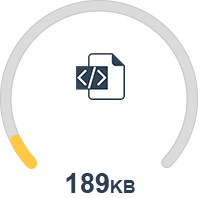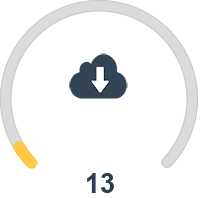Website
Performance without the
Poor website performance affects your visitors experience, and your sales potential.
Website Performance
- because anything less is costly
Website performance is a technical undertaking, though crucial on several levels. The line between a full-featured site with all the latest elements and website performance is thin. Fortunately, I’m pretty dang good at identifying issues and fixing them.
Performance is Crucial
The speed at which your site loads impacts not only Google’s view of your site (and deciding how to rank your site) but also your user’s experience. And their opinion matters most.
Neil Patal (a seriously smart SEO guy) says:
Fundamental Indicators
There are countless performance indicators, and we don’t know them all since Google is particularly secretive about specific details. But, at a minimum, there are 6 factors to get right before digging deeper.
(For an in-depth look at web site performance, read Website Speed and Why It Matters.)
Page Size

Keep page size below 3MB (3000KB) for optimal performance since heavy pages have slow loading times.
Page Requests

The more HTTP requests your website makes, the slower it becomes. Keep the number of files your site loads to a minimum.
Page Speed

World-class websites load within 2 seconds. The slower your load times, the more likely your visitors will abandon you.
Browser Caching
Browser caching speeds up your website by storing frequently used content in local memory.
Page Redirects
Multiple redirects will make your site load slower. Aim for no more than one redirect.
Image Sizes
Images can take a long time to load. Use responsive images, SVGs or webP to optimize your images for different screen sizes.
A Closer Look
Website performance refers to how efficiently a website functions and how quickly it loads and responds to user interactions. A well-performing website is essential for user experience (UX) and search engine optimisation (SEO). The following are my “8 Critical Aspects of Website Performance”.
-
Page Load Speed
The time it takes for a webpage to load fully is a critical factor in website performance. Users expect fast-loading pages, and search engines like Google consider page speed when ranking websites.
Factors impacting page load speed include server response times, image and multimedia optimisation, and content delivery networks (CDNs).
-
Server Performance
The performance of the web server hosting the website is vital. A reliable hosting provider, proper server configuration, and server response times contribute to overall website performance.
-
Content Optimisation
Optimising images, videos, and other media files can significantly impact page load times. Compressing images and using modern formats like WebP can reduce file sizes without sacrificing quality.
-
Minimising Requests
Reducing the number of HTTP requests to the server, such as CSS and JavaScript, images, and third-party plugins, can speed up page loading.
-
Caching
Caching involves storing frequently accessed web page elements, such as images and scripts, locally on the user’s device. Caching reduces the need to re-download these elements each time a user visits the website, improving load times.
-
CDNs
Content Delivery Networks (CDNs) are networks of servers that store cached copies of website content closer to users. CDNs reduce the physical distance data must travel, resulting in faster loading times.
-
CMS
Choosing a Content Management System (CMS), such as WordPress or Drupal, can impact website performance. Some CMS platforms are more resource-intensive and may require optimisation for speed.
-
Code Efficiency
Clean, efficient, and well-structured HTML, CSS, and JavaScript code will improve website performance. Bloated or poorly written code will slow a website considerably.
Make No Mistake
Website performance is a multifaceted aspect of web development that includes various technical and design considerations. A well-performing website not only enhances user experience but also plays a significant role in SEO and overall online success.
My Custom Web Services can help whether you need a new website built from the ground up, a complete redesign, or a performance audit on your existing site. I love what I do, and you’ll love what I do for you.
Are You Ready For The Next Step?
Let’s be partners! Drop me a line, and let’s see how I can help.
Your information will never be shared – that’s a promise.